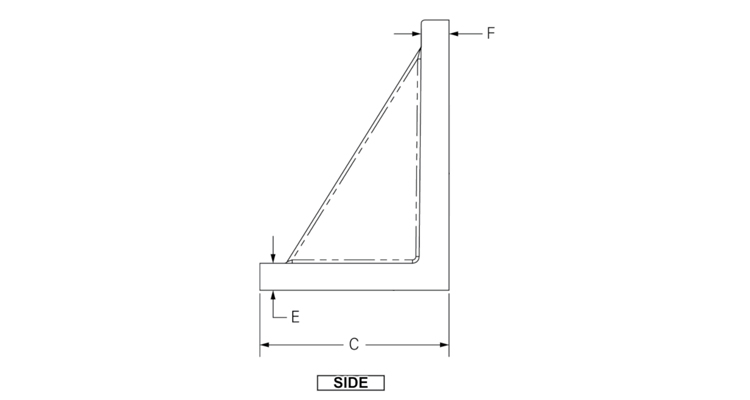1 月 . 20, 2025 16:44 Back to list
Electric soft seal gate valve
Gate valves are pivotal components within various industrial and domestic systems, known primarily for their efficacy in regulating fluid flow. Among the broad spectrum of valve technologies, gate valves stand out due to their ability to provide an unobstructed conduit for water, oil, or gas when fully open. Understanding the different types of gate valves can significantly impact system performance, reliability, and efficiency.
Expanding gate valves are another type that proffers enhanced sealing capability. Composed of twin discs that expand against each other, these valves ensure a tight seal and are highly valued in applications where leakage prevention is crucial. Their application is wide-ranging, from petrochemical industries to high-stakes environments where environmental protection and safety are of significant concern. The integrity of gate valves is greatly influenced by their material construction. Common materials include stainless steel, ductile iron, and brass, each selected based on the operational environment. Stainless steel gate valves are favored for their corrosion resistance, whereas ductile iron offers a cost-effective solution with adequate strength for many applications. Brass, with its antimicrobial properties, is preferred in potable water systems, ensuring clean and safe water delivery. Seal integrity and ease of operation are essential characteristics that professionals consider when selecting a gate valve. A valve's sealing surface can either be metallic or non-metallic, such as elastomer, impacting the flow medium’s compatibility. The choice between handwheel, gearbox, or actuator operation further determines the valve’s suitability for specific applications, each offering distinct benefits regarding control and ease of use. To maintain optimal performance, regular maintenance and testing of gate valves are imperative. This ensures longevity and reliability, particularly in critical applications. Routine inspection for wear, corrosion, and functionality, coupled with appropriate lubrication and part replacement, can prevent operational failures and extend the valve’s service life. Therefore, selecting the appropriate gate valve type requires thorough analysis of the system demands, environmental conditions, and operational requirements. Those in the industry must remain informed of technological advancements and emerging materials that could enhance valve performance. Through strategic selection and diligent maintenance, gate valves can significantly contribute to the efficiency and reliability of fluid control systems, solidifying their place as essential components in engineering and industrial applications.


Expanding gate valves are another type that proffers enhanced sealing capability. Composed of twin discs that expand against each other, these valves ensure a tight seal and are highly valued in applications where leakage prevention is crucial. Their application is wide-ranging, from petrochemical industries to high-stakes environments where environmental protection and safety are of significant concern. The integrity of gate valves is greatly influenced by their material construction. Common materials include stainless steel, ductile iron, and brass, each selected based on the operational environment. Stainless steel gate valves are favored for their corrosion resistance, whereas ductile iron offers a cost-effective solution with adequate strength for many applications. Brass, with its antimicrobial properties, is preferred in potable water systems, ensuring clean and safe water delivery. Seal integrity and ease of operation are essential characteristics that professionals consider when selecting a gate valve. A valve's sealing surface can either be metallic or non-metallic, such as elastomer, impacting the flow medium’s compatibility. The choice between handwheel, gearbox, or actuator operation further determines the valve’s suitability for specific applications, each offering distinct benefits regarding control and ease of use. To maintain optimal performance, regular maintenance and testing of gate valves are imperative. This ensures longevity and reliability, particularly in critical applications. Routine inspection for wear, corrosion, and functionality, coupled with appropriate lubrication and part replacement, can prevent operational failures and extend the valve’s service life. Therefore, selecting the appropriate gate valve type requires thorough analysis of the system demands, environmental conditions, and operational requirements. Those in the industry must remain informed of technological advancements and emerging materials that could enhance valve performance. Through strategic selection and diligent maintenance, gate valves can significantly contribute to the efficiency and reliability of fluid control systems, solidifying their place as essential components in engineering and industrial applications.
Latest news
-
Y Type Strainers: A Comprehensive GuideNewsOct.18,2024
-
Understanding Water Valve Options for Your NeedsNewsOct.18,2024
-
Functions and TypesNewsOct.18,2024
-
An Essential Component for Fluid SystemsNewsOct.18,2024
-
Adjustment and ReplacementNewsOct.18,2024
-
Slow Closing Check Valves: A Key Component in Fluid SystemsNewsOct.08,2024
Related PRODUCTS









